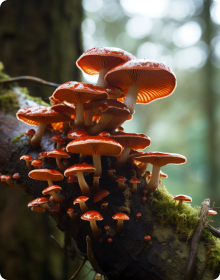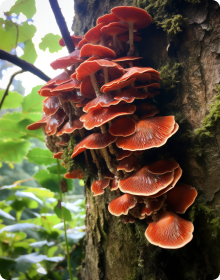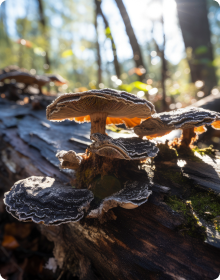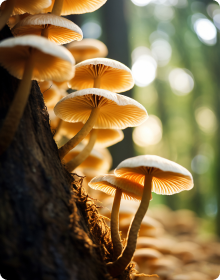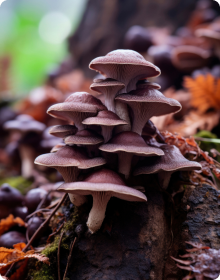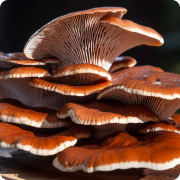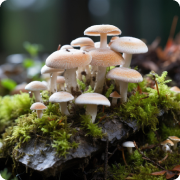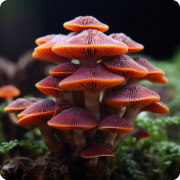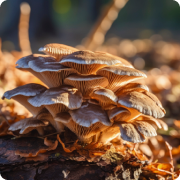Nao's Potential Anti-Cancer Products: Harnessing the Power of Superfood Gummies for Prevention and Healing
As cancer rates continue to rise, the role of nutrition in prevention and recovery has gained significant attention (Li et al., 2024). While no single food can guarantee protection against cancer, a well-balanced diet rich in cancer-fighting nutrients can support the body's natural defenses and promote overall health. In this article, we will explore the top foods and dietary strategies that have been shown to have anti-cancer properties, as well as their potential mechanisms of action. By incorporating these foods into your daily meals and adopting a holistic approach to nutrition, you can empower yourself to take proactive steps toward cancer prevention and support your body's natural healing processes (Li et al., 2024).The Gut Microbiome: A Key Player in Cancer Prevention
Recent research has highlighted the crucial role of the gut microbiome in maintaining overall health, including its potential influence on cancer risk. The trillions of bacteria residing in our gut interact with the foods we consume, producing metabolites that can have far-reaching effects on our well-being (Beres et al., 2020). Polyphenols, bioactive compounds found in plant-based foods, have been shown to promote the growth of beneficial gut bacteria, producing metabolites with anti-inflammatory and antioxidant properties (Song et al., 2022). By nurturing a healthy gut microbiome through a diet rich in prebiotic and probiotic foods, we can create an internal environment that is less conducive to cancer development.Top Cancer-Fighting Foods
1. Cruciferous Vegetables: Broccoli, cauliflower, kale, and Brussels sprouts contain sulforaphane, a compound that has been shown to have potent anti-cancer properties. Sulforaphane helps to neutralize carcinogens, reduce inflammation, and promote the death of cancer cells (Gupta et al., 2013).2. Berries: Berries, such as blueberries, raspberries, and strawberries, are packed with antioxidants that help to protect cells from damage caused by free radicals. These antioxidants, including anthocyanins and ellagic acid, have been shown to inhibit the growth and spread of cancer cells (Gupta et al., 2013).
3. Turmeric: This vibrant yellow spice contains a powerful compound called curcumin, which has been extensively studied for its anti-cancer properties. Curcumin has been shown to inhibit the growth and spread of various types of cancer cells and enhance the effectiveness of certain cancer treatments (Gupta et al., 2013).
4. Garlic: Garlic contains organosulfur compounds, such as allicin, which have been shown to have anti-cancer properties. These compounds help to detoxify carcinogens, reduce inflammation, and promote the death of cancer cells (Gupta et al., 2013).
5. Mushrooms: Certain varieties of mushrooms, such as Shiitake, Reishi, and Maitake, contain polysaccharides and other bioactive compounds that have been shown to stimulate the immune system and inhibit the growth of cancer cells (Bell & Fernandes, 2023).
Dietary Strategies for Cancer Prevention
In addition to incorporating specific cancer-fighting foods into your diet, adopting certain dietary patterns can also help to reduce your risk of cancer. Here are some key strategies to consider:1. Embrace a Plant-Based Diet: A diet rich in fruits, vegetables, whole grains, and legumes has been consistently associated with a lower risk of various types of cancer (Gupta et al., 2013; Li et al., 2024). Plant-based foods are rich in cancer-fighting nutrients and help promote a healthy gut microbiome (Song et al., 2022).
2. Limit Processed Foods: Consuming high amounts of processed and red meats has been linked to an increased risk of certain types of cancer, particularly colorectal cancer (Gupta et al., 2013). Opt for lean protein sources, such as fish, poultry, and plant-based proteins, and limit your intake of processed meats.
3. Avoid Refined Sugars and Unhealthy Fats: A diet high in refined sugars and unhealthy fats, such as trans fats and saturated fats, has been associated with an increased cancer risk (Gupta et al., 2013). Instead, focus on consuming healthy fats, such as those found in nuts, seeds, avocados, and fatty fish, and opt for natural sweeteners like fruit or small amounts of honey.
4. Stay Hydrated: Drinking plenty of water and other unsweetened beverages can help to support your body's natural detoxification processes and promote overall health (Gupta et al., 2013). Aim for at least eight glasses of water daily, and consider incorporating herbal teas or infused waters for added flavor and nutritional benefits.
The Power of Nao
At Nao, we preach that while no single food or dietary approach can guarantee complete protection against cancer, incorporating cancer-fighting foods and adopting a holistic approach to nutrition can be powerful tools for prevention and recovery. By nourishing your body with a diverse array of plant-based foods, supporting a healthy gut microbiome, and limiting your intake of processed and unhealthy foods, you can create an internal environment that is less conducive to cancer development. Remember, the power to support your health and well-being lies in the choices you make each day. By prioritizing nutrition and embracing a proactive approach to cancer prevention, you can take meaningful steps towards a healthier, more vibrant future.References
1. Bell, V., & Fernandes, T. H. (2023). Mushrooms as Functional Foods for Ménière's Disease. Applied Sciences, 13(22), 12348.
2. Beres, C., Cabezudo, I., & Maidin, N. M. (2020). Metabolites of polyphenols produced by probiotic microorganisms and their beneficial effects on human health and intestinal microbiota. In Lactic Acid Bacteria (pp. 223-240). CRC Press.
3. Gupta, C., Prakash, D., & Gupta, S. (2013). Relationships between bioactive food components and their health benefits. Introduction to functional food science textbook, 66-85.
4. Li, C., Zhang, J., Pan, P., Zhang, J., Hou, X., Wang, Y., ... & Wang, Y. (2024). Humanistic Health Management and Cancer: Associations of Psychology, Nutrition, and Exercise with Cancer Progression and Pathogenesis. Advanced Science, 2400665.
5. Song, Z., Cheng, L., Liu, Y., Zhan, S., Wu, Z., & Zhang, X. (2022). Plant-derived bioactive components regulate gut microbiota to prevent depression and depressive-related neurodegenerative diseases: Focus on neurotransmitters. Trends in Food Science & Technology, 129, 581-590.
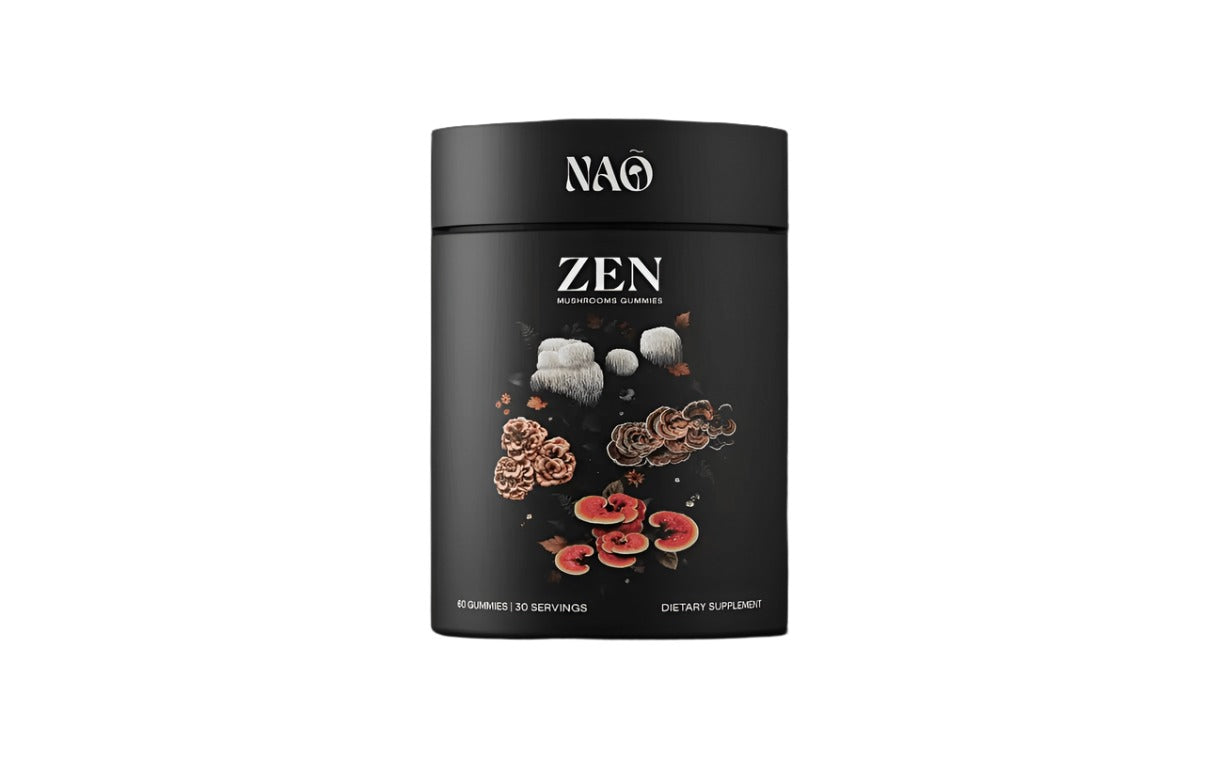
10 Natural Mushrooms Gummies - All-in-One Daily Supplement with Reishi, Cordyceps, Chaga, and Lions Mane
30 Servings of Mushrooms SuperFood
Add $24.90
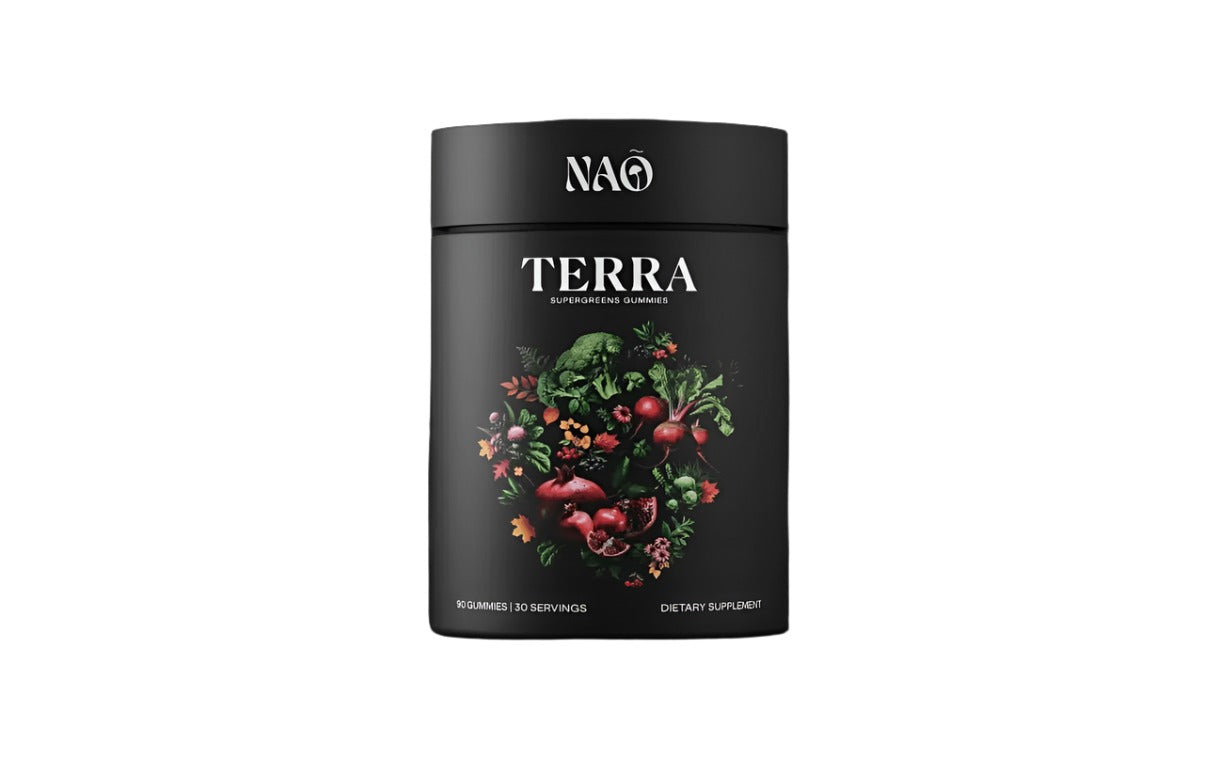
20+ Benefits Super Green Gummies
30 Servings of SuperFood
Add $24.90
